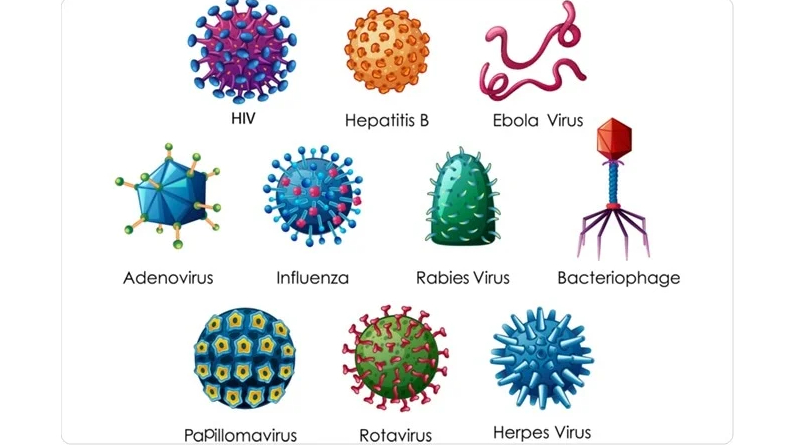The world-famous Department of Viroscience at the Erasmus Medical Centre (Erasmus MC) in Rotterdam, the Netherlands, is dedicated to advancing our understanding of viruses and the infections they cause at the molecular, patient, and population levels. Erasmus MC has a long and proud history as a teaching hospital and research facility.
They have made it possible to quickly identify and contain significant disease threats, as have other comparable centres throughout the world. In fact, their work entails researching and keeping an eye on a wide variety of viruses, including those that cause measles, mumps, and rubella (mumps), SARS, and Middle East respiratory disease (MERS).
In addition to viruses that are already recognised, their work aids in the discovery of novel and emerging infections that could endanger people and are becoming more common as a result of a variety of causes, such as globalisation, changing land use, and climate change. The ongoing COVID-19 pandemic, which is now in its fourth year, and the more recent mpox (monkeypox) public health emergency of global concern are just two recent examples that highlight the significant impact that zoonotic diseases (diseases that are spread by animals) can have in our interconnected world.
We spoke with Dr. Richard Molenkamp, a clinical molecular virologist employed by the Department of Viroscience, to learn more about the work done there, particularly in light of the COVID-19 pandemic.
The world-famous Department of Viroscience at the Erasmus Medical Centre (Erasmus MC) in Rotterdam, the Netherlands, is dedicated to advancing our understanding of viruses and the infections they cause at the molecular, patient, and population levels. Erasmus MC has a long and proud history as a teaching hospital and research facility.
They have made it possible to quickly identify and contain significant disease threats, as have other comparable centres throughout the world. In fact, their work entails researching and keeping an eye on a wide variety of viruses, including those that cause measles, mumps, and rubella (mumps), SARS, and Middle East respiratory disease (MERS).
In addition to viruses that are already recognised, their work aids in the discovery of novel and emerging infections that could endanger people and are becoming more common as a result of a variety of causes, such as globalisation, changing land use, and climate change. The ongoing COVID-19 pandemic, which is now in its fourth year, and the more recent mpox (monkeypox) public health emergency of global concern are just two recent examples that highlight the significant impact that zoonotic diseases (diseases that are spread by animals) can have in our interconnected world.
We spoke with Dr. Richard Molenkamp, a clinical molecular virologist employed by the Department of Viroscience, to learn more about the work done there, particularly in light of the COVID-19 pandemic.
1. What is your specific function at Erasmus MC, and how long have you worked here?

I’ve been working here for four and a half years, and my primary responsibility is molecular diagnostics, or the analysis of markers in viral genomes to diagnose and track disease and assist physicians in choosing the most effective treatments for their patients.
Also Read :Addictions in Love and Politics or Reports from the Berlin Film Festival
In addition to that, I contribute to the work of other virus reference centres. The WHO Collaborating Centre for Arbovirus and Haemorrhagic Fever Reference and Research is located at Erasmus Medical Center. Mosquitoes, ticks, and other arthropods can spread arboviruses. The Collaborating Centre’s duties also include addressing novel and recently discovered infectious diseases, like coronavirus-related illnesses. Additionally, the Department of Viroscience serves as the National Reference Centre for Influenza and Emerging Viral Infections in the Netherlands and is recognised as one of the WHO European Region’s reference laboratories for measles and rubella.
2. Could you provide us with a brief summary of the mission and activities of the Department of Viroscience?
We carry out fundamental analysis, diagnostics, and everything in between! In all of our endeavours, we hope to learn things that can improve human health. We have a large department with 200 to 300 employees, including clinical doctors who work closely with patients and scientists and technicians at all levels who actually carry out the diagnoses and investigations.
3. How can viruses be recognised, classified, and diagnosed?

We attempt to identify the virus’s genomic material using polymerase chain reaction (PCR), which copies, amplifies, and detects the ribonucleic acid (RNA) strands that make up the viral genome.
Additionally, sequencing allows us to comprehend the precise sequencing of the genetic information included in the RNA strands, aiding in the identification and characterization of the virus, for example, by allowing us to establish whether virus mutations may have an impact on antiviral therapy.
As an alternative, we can ascertain a patient’s viral history by examining the antibodies present in their serum (serology). Finally, in some instances, we use virus cultures to provide answers to some very specific diagnostic queries we may have.
Can you explain us how the Erasmus MC laboratory have contributed to the search for the COVID-19 virus, SARS-CoV-2?
We worked with other WHO collaborating centres from the early stages of the pandemic in January 2020 to validate a PCR test created by the Charité laboratory in Berlin, Germany, which would later become a global standard for the diagnosis of SARS-CoV-2.
We then began SARS-CoV-2 testing in the third week of January 2020. Since then, and practically until today, we have advised and worked with WHO and other WHO collaborating centres all over the world to exchange knowledge about the virus and lab techniques.
At first, we only tested suspected cases in the Netherlands that had been to China or, later, Italy, but at the end of February, we discovered our first COVID-19 case that was positive. The National Institute for Public Health and the Environment (RIVM) joined us in our routine testing after that, and we checked each other’s test findings.
We served as the only testing laboratory for the Rotterdam region until August 2020, when it became clear that more testing capacity than we could offer was required as the epidemic spread and more hospital laboratories got involved in testing.
To try to stop the spread of the COVID-19 infection and to guarantee that there is an adequate supply of staff available to provide healthcare, we are currently primarily engaged in the routine testing of newly admitted patients to our hospital.

